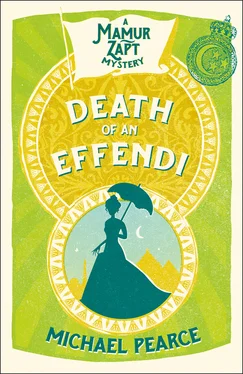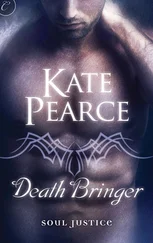Owen emerged from his tent carrying a gun. Tvardovsky, coming out at the same time, regarded it distrustfully.
‘What’s that for?’ he said.
‘Protective camouflage,’ said Owen. He did not expect to use it. Duck-shooting was not what he was about.
Tvardovsky himself was gunless. Nevertheless, he walked down to the boats with the others.
They were flat-bottomed boats, like punts, suitable for the shallow water at the edge of the lake and for lying among the reeds. The boatman held the boats for the shooters to clamber in, two to a boat, with a boatman there to paddle and retrieve.
At the last moment there was a hitch. There were not enough boats to accommodate everyone.
‘I’ll sit this one out,’ said Tvardovsky.
‘So will I,’ said Owen.
‘No, no,’ said the maître d’hôtel. ‘No problem.’
He produced two more boats. They were of the basket sort, made of reeds. Empty, they seemed to lie on top of the water. Carrying someone, they sank down and water seeped in through the sides so that there was a little pool of water inside the boat, in which the person was sitting. After that, though, they sank down no more and the level of water remained the same, matching that outside.
‘Actually,’ said the maître d’hôtel, ‘you’ll find them more suited for shooting. The boatmen will be able to take you right in among the reeds and you’ll get a better shot.’
Tvardovsky shrugged and climbed in. That was the snag. The boat could only take him, not Owen. Owen was being marshalled towards a similar boat lying alongside. Tvardovsky looked up at Owen.
‘I won’t be far,’ said Owen.
Tvardovsky shrugged again.
‘Where gun?’ said the boatman.
‘No gun,’ said Tvardovsky.
‘No gun?’ The boatman turned to the maître d’hôtel, bewildered.
‘No gun,’ said the maître d’hôtel. ‘Just watch.’
The boatman exchanged glances with the man holding Owen’s boat. The shrugs were ever so slight.
Owen got into his basket. At once the water seemed to rush in.
‘All right,’ said the boatman, grinning. ‘Not sink.’
For a moment Owen was not so sure about that; nor about the general stability of the craft. It rocked crazily and he grabbed at the plaited gunwales on either side. Then the boat settled. He found himself sitting in water. After the first shock it was not disagreeable: pleasantly warm, almost languorous – sensuous, even. He settled the gun between his knees.
Then he remembered and cursed. He felt down into his pocket. Never mind that gun, it was the other one that mattered. He pulled it out, dried it against his tunic and then stuck it into his breast pocket.
His boatman gaped.
‘This one,’ he said, tapping the gun between Owen’s knees. He pointed to the small arm. ‘No need,’ he said, shaking his head.
‘I hope you’re right,’ said Owen. It hadn’t felt very wet. He hoped the chamber had not been affected.
The boatman pushed the boat out and then got in. He began to paddle.
In the other boats the boatmen stood up and poled their craft along. This close to the shore the water was very shallow and the trick was not to get out but to get in, among the reeds. This was where the basket boats had the advantage. The other boats had to hold themselves out on the edge of the reeds. The basket boats could go right in.
The boatman pushed the reeds aside with his paddle and edged through. Tvardovsky’s boat was just ahead of them.
‘You stay close to that,’ Owen directed.
The boatman nodded.
The reeds had closed all around them so that it was as if they were in a little enclave of their own. All they could see was the sky, which was, of course, all that they needed to see.
They settled down to wait. While they had been paddling out there the darkness had cleared and the sun was just coming up over the top of the reeds, a great ball of red.
The reeds were very still. But then, as the sun came up and the warmth began to touch the water, there were little rustles of movement. The lake was waking up.
The boatman reached forward and touched the gun.
Owen shook his head.
The boatman mimicked putting it to his shoulder and firing.
‘He doesn’t like shooting,’ said Owen in Arabic, jerking his head in Tvardovsky’s direction. ‘He just wants to watch.’
The boatman shrugged, accepting.
Tvardovsky sat sombrely in his boat, a little apart from Owen. Owen tried to catch his eye but Tvardovsky was staring into the reeds.
Suddenly there was a loud report and then from all along the shore, birds flew up into the sky. For a moment all was confusion as the birds scattered and squawked but then there were more reports and suddenly, from over to their right, the ducks came flying. They came with almost unbelievable speed, heading right across their front and out towards the centre of the lake.
At once, raggedly, almost in panic, the shooting started. From somewhere very near them, just beyond the reeds, a veritable barrage opened up.
Tvardovsky put his hands over his ears. The noise was deafening.
The fusillade seemed to have no effect on the ducks. They just flew on and on, an endless number of them.
But then suddenly they were gone. The shooting died away. The lake returned to its quietness. It was as if nothing had happened; only now, here and there among the reeds, Owen saw bunches of feathers and in the water the occasional floating spot of red.
The boatman gave an exclamation and then paddled the boat swiftly to one side. He poked the reeds apart with his paddle, reached out and lifted a bird, hanging limply, into the boat. He paused for a second, eyes searching the reeds and then drove the boat on again, just a few yards. Another bird was handed into the boat.
And then, surprisingly, two last birds came in towards them.
‘Effendi, Effendi!’
The boatman thrust the gun into Owen’s hands.
Almost without thinking, Owen put the gun to his shoulder and fired.
The birds swooped on and he thought for a moment that he had missed. Then first one and then the other seemed to check in mid flight and fall like stones.
The boatman whooped with delight and hurried the boat to where they had fallen and Owen was pleased, too, exhilarated. He had not meant to take part but then it had all happened so quickly, and he had not been able to resist.
The boatman retrieved the birds and showed them to Owen, smiling. Then he stowed them away with the other birds.
‘Hotel?’ he said, picking up the paddle.
‘Tvardovsky,’ said Owen, looking around him. ‘Where’s Tvardovsky?’
Everywhere were reeds. There was no sight of Tvardovsky.
‘The other boat,’ said Owen. ‘I need to find the other boat!’
The boatman shrugged but then reluctantly began to paddle back in roughly the direction they had come. Only, among the reeds, the direction was no longer clear. In this part of the lake they reached to head-high and grew so thickly that you could not see more than a yard or two in any direction.
‘Tvardovsky!’ Owen called. ‘Where are you?’
But there was no reply.
‘Ahmed!’ called the boatman. ‘Ahmed!’
From somewhere further off they could hear the sounds of the other boats returning, the delighted chatter of the sportsmen.
And then, floating out from behind the reeds, dyeing the water, came a little trail of red; not from a bird this time.
Reactions afterwards were strangely muted. His Highness had, fortunately, departed the previous evening. His office issued a statement of regret on his behalf but otherwise seemed surprisingly unconcerned.
‘As long as it’s kept out of the newspapers,’ they said offhandedly.
Читать дальше












